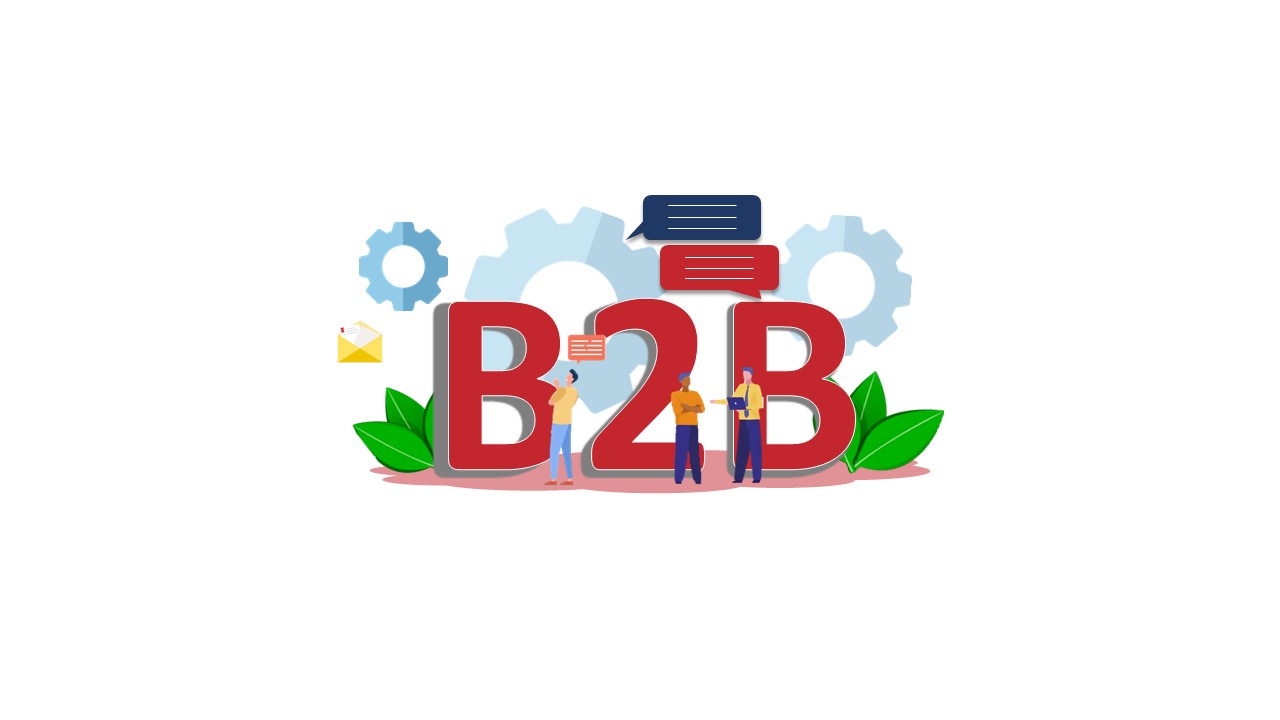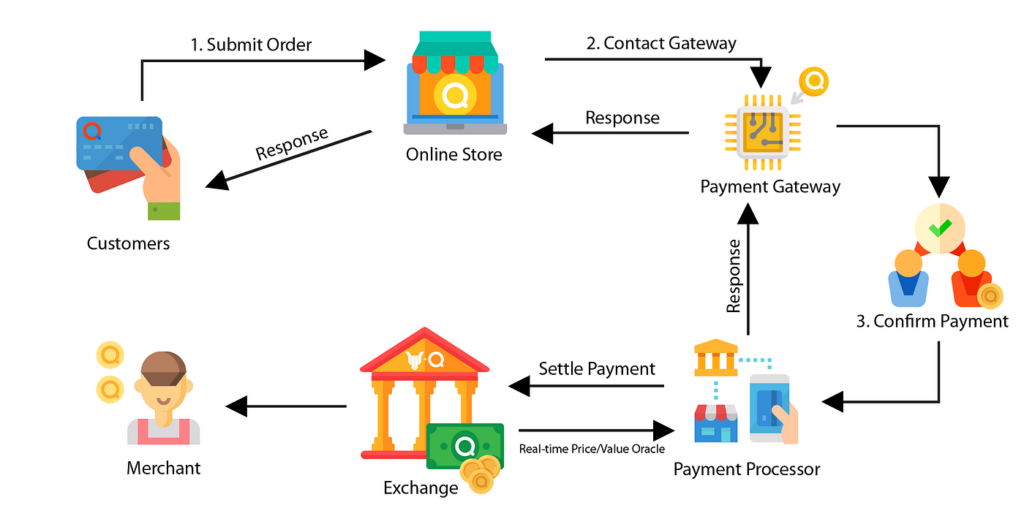
B2B E-Commerce Advantages vs. Disadvantages
Business-to-business (B2B) e-commerce marketing offer businesses in Singapore multiple advantages over traditional sales and marketing, which include increased efficiency, cost savings and improved customer satisfaction.
With the rapid growth of e-commerce platforms, businesses can expand their customer base by reaching potential clients across the region.
Benefits of B2B E-commerce Marketing
B2B e-commerce, or business-to-business electronic commerce, offers numerous benefits for organisations selling goods or services. Here are some critical advantages of B2B e-commerce.
Reach a Larger Audience and Increase Visibility
Businesses can significantly expand their reach and connect with a larger audience through B2B e-commerce. This form of online marketing transcends physical boundaries, providing an opportunity to engage with potential customers regardless of location. As a result, brands can establish a solid online presence and increase their visibility.
One effective B2B strategy for growth and improving brand visibility is using relevant keywords and local search engine optimisation on B2B e-commerce websites. This approach helps brands achieve higher rankings on search engine results, ensuring their presence is noticed by a broader target audience.
Building brand awareness is crucial in establishing trust between buyers and sellers and enhancing credibility within the industry. Positive customer experiences also play a significant role, leading to word-of-mouth promotions that further contribute to brand recognition. Moreover, B2B e-commerce breaks down geographical barriers, allowing businesses to expand their market reach beyond local boundaries.
With the ability to connect with potential buyers and suppliers from different regions, companies can tap into a larger customer base and unlock opportunities for business growth on a global scale. The increased accessibility and potential for international connections are key advantages B2B e-commerce brings to businesses seeking expansion.
Business Potential with Minimal Investments
Adopting B2B marketing through e-commerce is an investment that requires lower costs compared to traditional methods. It eliminates the need for physical stores, reduces paperwork, and minimises manual intervention. Moreover, e-commerce platforms offer integration with back-end systems, streamlining operations and cutting costs.
By utilising online product catalogues and lead-generation digital marketing strategies like email newsletters or social media ads, businesses can access data-driven insights through tools such as Google Analytics to optimise campaigns while keeping expenses low. This makes it a reliable way to reach targeted audiences.
B2B e-commerce platforms often integrate with inventory management systems, enabling businesses to optimise inventory levels efficiently. Real-time visibility of stock levels, automated reordering, and streamlined supply chain processes help minimise stockouts, reduce excess inventory, and improve overall inventory management.
Helps Develop and Nurture Relationships with Customers
B2B e-commerce platforms offer customers a convenient and user-friendly way to purchase. With these platforms, buyers can easily browse through catalogues, access product information, compare prices, and place orders anytime and anywhere. This enhanced purchasing experience boosts customer satisfaction and promotes loyalty.
B2B e-commerce marketing brings even more convenience and accessibility to customers while also fostering their loyalty. Businesses can utilise digital channels to provide post-purchase services like customer support, feedback mechanisms, and after-sales assistance.
E-commerce stores provide businesses valuable customer data, including browsing history, purchase behaviour, and demographics. By leveraging this data, companies can personalise the shopping experience, recommend relevant products, and tailor marketing campaigns to individual customers. This level of personalisation demonstrates to customers that their preferences and needs are valued, ultimately building a stronger connection and fostering loyalty.
Generate more Leads and Sales
Online B2B marketplaces offer businesses a platform to showcase their products or services to a larger customer base. This increased visibility can result in more sales, revenue, and potential business partnerships.
In the past, businesses primarily conducted transactions over the phone or in physical stores. However, with the advent of technology, sales have shifted online. Companies now have the opportunity to promote their goods and services, host online demonstrations, and provide a streamlined ordering process for customers.
E-commerce empowers B2B businesses to sell to other companies and directly to consumers through the B2B2C model. By developing a system that caters to businesses of all sizes and targeting diverse audiences through digital marketing efforts, a B2B company can expand its sales and customer base.
Disadvantages of B2B E-commerce Marketing
It’s important to weigh both sides regarding B2B e-commerce marketing. There are several advantages. However, there are also several disadvantages. This article section examines the drawbacks of B2B e-commerce.
Technical Considerations
One of the primary complexities of running an e-commerce store lies in the technical aspects. Building and maintaining a functional e-commerce website requires expertise in web development, user experience design, security, and performance optimisation.
From selecting the right e-commerce platform and integrating payment gateways to ensuring seamless inventory management and order fulfilment, numerous technical considerations must be addressed to ensure a smooth and reliable online shopping experience.
In today’s digital landscape, customers expect a seamless shopping experience across multiple channels, including websites, mobile apps, social media platforms, and marketplaces. Building and managing an omnichannel presence requires integrating various systems and platforms, ensuring consistent branding and messaging, and delivering a unified customer experience.
Coordinating inventory, pricing, promotions, and customer data across different channels can be challenging, but e-commerce businesses must meet customer expectations and stay competitive.
Lack of Human Touch
Customer service and personal interaction are vital in the B2B model. Building trust between sellers and buyers takes time in the B2B seller-buyer relationship. As a result, businesses are concerned that adopting B2B e-commerce might compromise their customer service quality and create a distance from their customers.
Potential B2B clients may have similar preferences to consumers in this regard, especially when they plan to make purchases. However, the e-commerce platform doesn’t allow customers to physically inspect the items, so they must rely on trust when purchasing. If customers end up dissatisfied with the products, the company may face expensive after-sale disputes and damage to its reputation.
To mitigate this risk, businesses must refine product descriptions and provide video demonstrations. These measures enhance the browsing experience for customers and reduce the likelihood of dissatisfaction with the purchased items.
Online Security Risk
Security is a paramount concern for e-commerce stores. Protecting sensitive customer information, securing online transactions, and preventing unauthorised access require robust security measures. Implementing secure payment gateways, SSL certificates, and encryption protocols and adhering to industry standards like PCI-DSS (Payment Card Industry Data Security Standard) are necessary to build customer trust and credibility.
Many businesses are also concerned about exposing customers’ confidential and sensitive information to potential security breaches using an E-Commerce platform. For example, customers are at risk of security breaches such as exposed credit card numbers. Furthermore, some businesses may be reluctant to reveal their prices online to their competitors.
A web-based business strategy exposes the company and its customers to several hazards. Businesses are disclosing their pricing to rivals by running an openly available internet portal, which they may exploit to boost their sales. Customers could worry that making purchases online puts their private information in danger of security breaches. Investing in robust online security measures that encrypt client data and guard against data leaks is crucial to reduce risk.
Complicated Online Experience
On an E-commerce site, sellers sometimes have customised products for customers to choose from different requirements for their business. However, sellers are concerned that this will make B2B customers’ purchasing journeys more difficult and make the purchasing process convenient compared to a phone call.
Long-term customers frequently request or anticipate preferential treatment, such as purchase price breaks. Considerably in the more adaptable world of face-to-face talks, such requests can take time. However, the largely automated world of e-commerce can make it even harder.
Long meetings or emails may be necessary to address devoted customers’ unique requirements and desires, which somewhat undermines the convenience of an e-commerce approach. It might be advantageous to set up the system such that talks can take place independently from the purchasing platform.
Conclusion
B2B e-commerce presents a range of benefits for companies in Singapore seeking to expand their reach and improve their operations. One advantage is reaching a wider audience and targeting specific markets with minimal effort or resources. This saves valuable time and ensures cost-effectiveness in achieving the desired customer base.
Another significant advantage is the increased visibility that B2B e-commerce brings to a company’s brand. By establishing an online presence, businesses can effectively shape a positive brand image and enhance recognition among potential customers, leading to greater opportunities for growth.
Furthermore, B2B e-commerce facilitates the development and nurturing of customer relationships. Businesses can effectively retain existing customers through personalised communication and engagement while generating leads and sales. This aspect of B2B e-commerce plays a crucial role in building customer loyalty and driving long-term business success.
However, it is essential to acknowledge that B2B e-commerce can be complex. It requires a thorough understanding of target customers and their needs to succeed. Companies must carefully choose their target audience and market, as B2B e-commerce has a limited scope and may not be suitable for all types of businesses.
In summary, B2B e-commerce allows businesses to expand their reach, improve brand visibility, and foster customer relationships. While it can be a valuable tool for growth, careful consideration of target markets and customer understanding is necessary to leverage the full potential of B2B e-commerce in Singapore.







